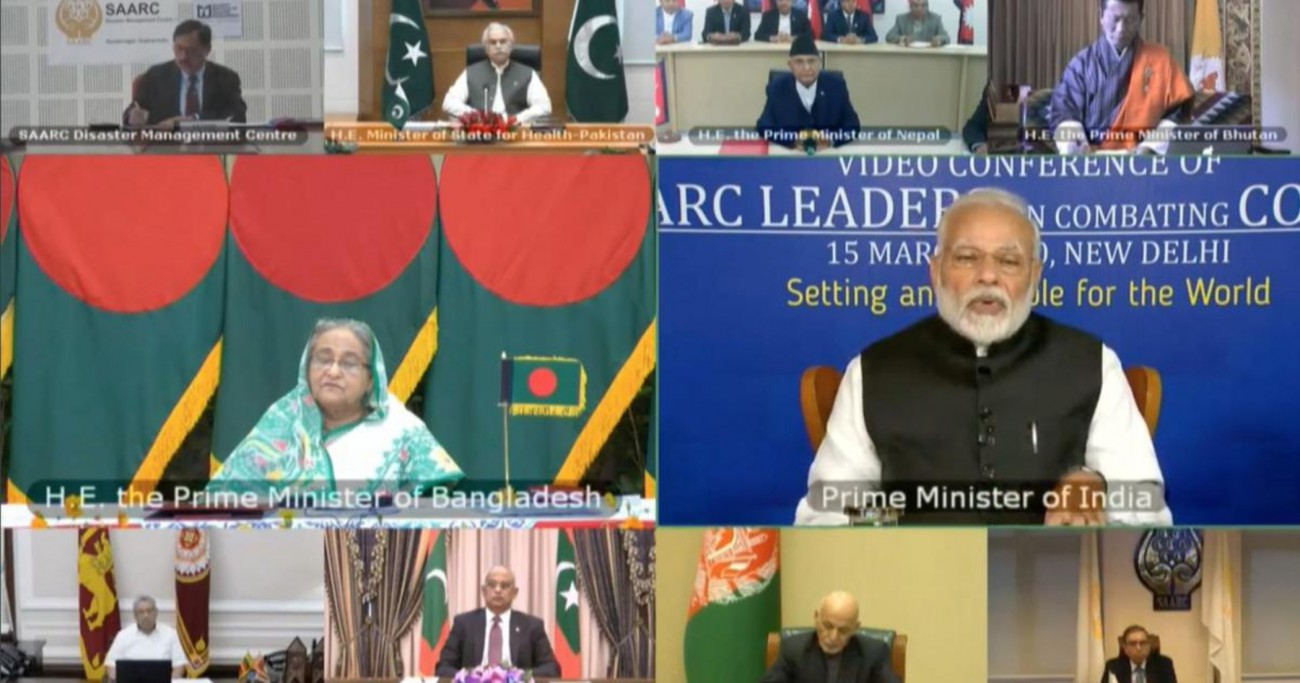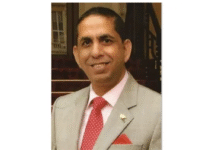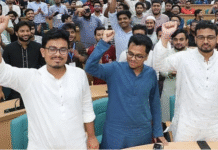Indian Prime Minister Narendra Modi’s proposal for consultations among the leaders of the Saarc member countries through a video conference to try and collectively meet the threat of COVID-19 was a most thoughtful and a timely initiative. It was also an unprecedented move, both in its form and in content. The prompt response to the proposal from all the Saarc leaders, notwithstanding Pakistan’s slightly delayed nod, was also a reflection of the degree of seriousness with which South Asia is treating this pandemic, one that has brought the planet to a halt.
The video conference of March 15 was unprecedented because this was the first time that Saarc leaders used the medium of a video conference to talk amongst themselves and not wait for a full-scale summit meeting. Notably, until then South Asia, and by extension, Saarc, was the only regional grouping that had taken such a move. European Union member countries, known for their tradition of mutual consultation and coordination when faced with any serious issue, are now pointing fingers at each other as Europe grapples with the effects of COVID-19 in all spheres of its life. The Asean, another regional grouping to our east that has prided itself in being cohesive, has come up seriously short in adopting a coordinated response to the spread of the deadly virus.
All Saarc leaders, except Pakistan’s Prime Minister Imran Khan, participated at the historic video conference. They shared their respective experiences with the coronavirus and suggested possible steps to halt its spread. Why the Pakistani leader chose to stay away and instead designate an adviser, who presumably holds the rank of a minister, to represent him at the event is quite inexplicable. Frankly, it was a missed opportunity for Imran Khan to interact face to face, for the first time, with all other Saarc heads of states and governments, and that too on an issue that is non-political but one that impacts in varying degrees on all countries, not only in South Asia but in the whole world. Importantly, Pakistan is supposed to assume chairmanship of Saarc as the host of the next summit whenever it is convened. Prime Minister Imran Khan’s presence at the video conference would have been an indication that his country was committed to move the Saarc process forward and give it a much-needed momentum.
The video conference was significant for yet another reason. Following a spate of terrorist attacks on Indian soil over the last couple of years, allegedly with Islamabad’s support, India had put on hold all high-level bilateral dialogue with Pakistan saying, “Terror and talks cannot go together”. New Delhi has held on to this stance for long. By calling for this video conference, however, and to try and adopt a coordinated move to deal with the menace of COVID-19, Indian Prime Minister Narendra Modi had clearly signalled his government’s readiness to put bilateral differences aside for the sake of greater regional good. After all, this is what Saarc is all about. COVID-19 is bigger than any military threat; it respects no frontiers, it is not visible till it hits, it targets anyone in its path and the world is still defenceless against its potency. This is what makes Modi’s initiative all the more welcome.
In spite of its many shortcomings and all the perceptible trust deficits that has plagued the region for long, the people of South Asia has always looked upon Saarc as a symbol of hope and institutionalised regional economic collaboration. Its political benefits also cannot be ignored. History shows that Saarc summit gatherings have, on more than one occasion, helped ease political tensions in the region. The Colombo Summit, for example, held shortly after India and Pakistan went nuclear, enabled leaders from the two countries to assure others that this part of the world was not about to go up in nuclear smoke. Similarly, the Kathmandu Summit of 2002, coming on the heels of the bloody Kargil conflict, saw Pakistan’s then military President Parvez Musharraf most dramatically and publicly extend his hand of peace to Atal Bihari Vajpayee, a gesture that the then Indian prime minister accepted with grace.
It would be pertinent to recall that long before the terror attacks in New York and Washington in September 2001, Saarc had already put in place a comprehensive Regional Convention on Suppression of Terrorism in 1987. An additional protocol to this agreement was signed at the Islamabad Summit in 2004 to bring it in sync with relevant UN resolution on terror financing. Not that the documents contributed to ending the menace of terrorism, but then neither did any other global effort. The intent, though, was evident.
One hopes that the video conference of March 15 could herald in a renewed sense of urgency and a realisation that when faced with a grave challenge such as this, South Asia’s political leaders are willing to rise above themselves and work together for the good of all. It would be safe to assume that the people of South Asia as a whole would have welcomed this move.
Shamsher M Chowdhury BB is the former Foreign Secretary of Bangladesh.
Source: The Daily Star










